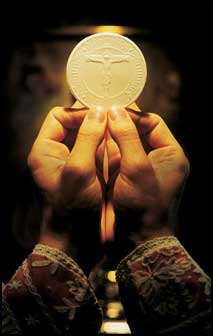
And they devoted themselves to the apostles’ teaching and the fellowship, to the breaking of bread and the prayers.
Acts 2:42
Growing up in a free church tradition, the emphasis was always on preaching. Indeed, preaching is essential for it has been ordained by God to be the means by which are lives are transformed by the gospel (1 Cor. 1:21). But, preaching is not the only thing that God has appointed for the edifying of his church and the strengthening of the saints. Christ gifted the people of God with the sacraments of Baptism and the Lord’s Supper.
The sacraments of Baptism and Eucharist are physical, visible signs ordained by Christ for the encouragement, uplifting  and spiritual comfort of the people of God into the presence of God. Scripture proclaims that the Holy Spirit takes material objects: water, bread, and wine, infuses them with grace, so that by the partaking of them, we are made holy. By the power of the Holy Spirit, these outward physical signs lead us into the experience of inward spiritual truths of the Christian life.
In the preaching, we receive God’s grace through the ear and in the sacraments, we are empowered by God’s grace through the eye.
Both Word and sacrament bear witness to Christ. Both promise salvation in Christ. Both quicken our faith in Christ. Both enable us to feed on Christ in our hearts. The major difference between them is that the message of the one is directed to the eye, and of the other to the ear. So the sacraments need the Word to interpret them.
The ministry of the Word and sacrament is a single ministry, the Word proclaiming, and the sacrament dramatizing, God’s promises. Yet the Word is primary, since without it the sign becomes dark in meaning, if not actually dumb.
John Stott, Authentic Christianity, ed., Timothy Dudley-Smith (Downers Grove, IL: Inter-Varsity Press, 1995), 277.





